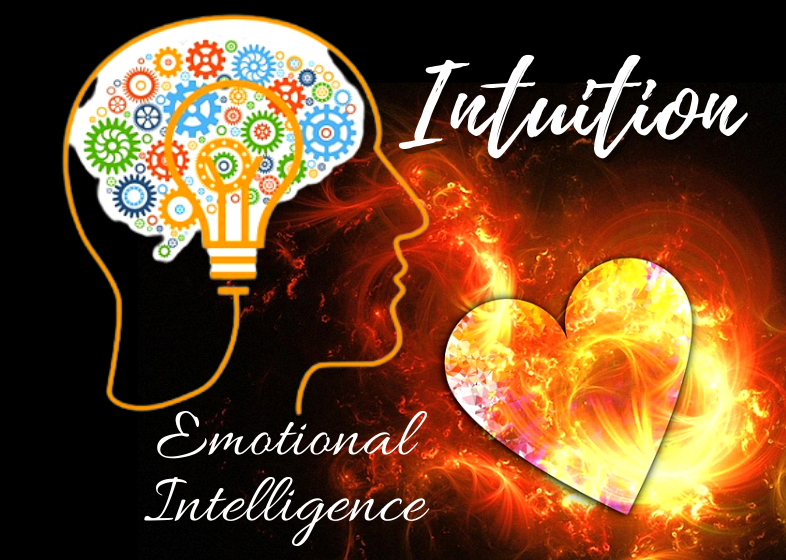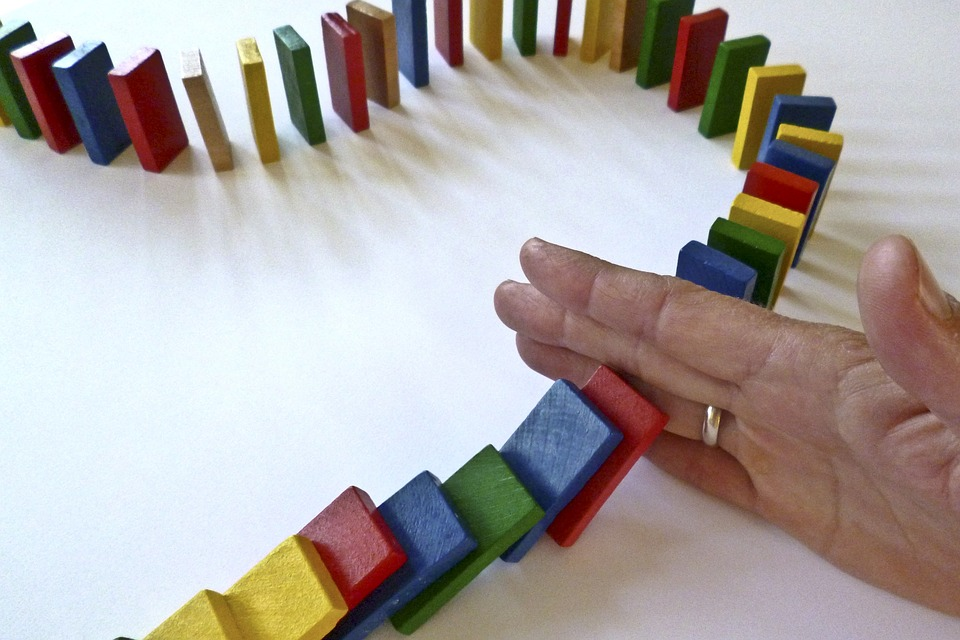Inteligencia Emocional: Cómo usar la intuición / Emotional Intelligence: How to use intuition
hive-102879·@chaodietas·
0.000 HBDInteligencia Emocional: Cómo usar la intuición / Emotional Intelligence: How to use intuition
<div class="text-justify"> En la actualidad es frecuente escuchar sobre <strong><i>Inteligencia Emocional</i></strong>. Desarrollarla ha hecho más sencillo gestionar nuestros sentimientos y emociones, relacionándonos de manera más óptima con nuestro entorno. En la medida que tengamos mayor capacidad para reconocer y analizar nuestras emociones, así cómo saber qué las origina y cómo las manifestamos, podemos adquirir habilidades sociales que moderarán nuestro comportamiento y guían la toma de decisiones. >Nowadays, it is common to hear about <strong><i>Emotional Intelligence</i></strong>. Develop it easier to manage our feelings and emotions, allowing us to relate more optimally with our environment. To the extent that we are better able to recognize and analyze our emotions, to know what causes them and how we manifest them, we can acquire social skills that will moderate our behavior and guide our decision-making.  <center>Fuente / Source [(1)](https://pixabay.com/es/illustrations/un-coraz%c3%b3n-fuego-ardiente-amor-7042667/)[(2)](https://pixabay.com/es/illustrations/cerebro-engranajes-concepto-cr%c3%a1neo-3829057/)</center> Nuestros sentimientos y emociones son la respuesta natural a los estímulos (circunstancias, personas) con los que interactuamos. Algunos de estos pueden generar sentimientos negativos como positivos. Cuando nos cargamos de sentimientos positivos, una energía intangible se manifiesta en nosotros causando una reacción en cadena donde nacen más sentimientos positivos que nos brindan el empuje y la motivación para lograr lo imposible. Esto suena genial y creo que todos anhelamos estar en este lado emocional. No sentir emociones negativas es una utopía. La naturaleza humana es dual, pero si es posible minimizar los sentimientos negativos y obtener información valiosa de ellos para lograr equilibrio emocional. >Our feelings and emotions are our natural response to the stimuli (circumstances, people) with that we interact. Some of these can generate negative feelings or positive ones. When we are charged with positive feelings, intangible energy that has been manifests in us, causing a chain reaction where more positive feelings are born that gives us the drive and motivation to achieve the impossible. It sounds great? I think we all long to be on this emotional side! <br> Not feeling negative emotions is a utopia. Human nature is dual, but it is possible to minimize negative feelings and gain valuable information from them to achieve emotional balance.  Gestionar de forma adecuada los sentimientos requiere de reconocerlos sin distorsionarlos por el exceso de carga emocional. Esto permite razonar cómo nos sentimos y saber qué debemos hacer para afrontarlos. Muchos estímulos a nuestro alrededor son confusos pero <strong><i>nuestras experiencias previas de contacto con alguno de ellos nos dan pistas para saber de qué se trata y es aquí donde entra en juego "la intuición"</i></strong>. La <strong><i>intuición</i></strong>, estudiada bajo la óptica conductual y psicológica, es la <strong><i>capacidad de reconocer un conjunto de información que al agruparlas otorgan un patrón que permiten advertir sobre una situación favorable o no</i></strong>. Tomar en cuenta a esta "voz interna" permite esquivar estímulos negativos y por ende no exponernos con facilidad a sentimientos negativos. Recuerda que no podemos dejar de experimentar los sentimientos negativos pero sí podemos desarrollar habilidades para salir pronto de su influencia. >Properly managing feelings requires recognizing them without distorting them by an excess of emotional charge. It allows us to reason how we feel and to know what we should do to deal with them. Many stimuli around us are confusing, but <strong><i>our previous experiences of contact with some of them give us clues to know what it is, and this is where "intuition" comes into play</i></strong>. <br> <strong><i>Intuition</i></strong>, studied from a behavioral and psychological point of view, is <strong><i>the ability to recognize a set of information that when grouped, gives a pattern that allows us to warn about a favorable or unfavorable situation</i></strong>. Taking into account this "inner voice" allows us to avoid negative stimuli and therefore not to expose ourselves easily to negative feelings. Remember that we cannot stop experiencing negative feelings, but we can develop skills to get out of their influence as soon as possible.  <center>[Fuente / Source](https://pixabay.com/es/photos/domin%c3%b3-vistoso-patrones-4020617/)</center> La intuición se alimenta de todas las experiencias que hemos vivido y se han almacenado en el inconsciente. Cuando un conjunto de datos encajan en una circunstancia, <strong><i>esa advertencia que llamamos "intuición" se activa de forma automática convirtiéndose en una “alarma silenciosa” capaz de generar sentimientos y somatización en nuestro cuerpo</i></strong>. >Intuition is to be fed by all the experiences we have lived and stored in the unconscious. When a set of data fits a circumstance, <strong><i>that warning that we call "intuition" is activated automatically, becoming a "silent alarm" capable of generating feelings and somatization in our body</i></strong>.  Te voy a colocar un ejemplo para que veas cómo funciona nuestra intuición. Si te encuentras en una entrevista de trabajo para aspirar a un cargo ¿qué cosa tomas en cuenta? Muchos dirán que la remuneración y tal vez otros beneficios laborales. Es posible que la oferta laboral sea la que siempre has soñado pero <strong><i>hay algo que no te termina de convencer y no sabes qué es</i></strong>. Pues es en este momento que tu intuición se está manifestando. Tu inconsciente ha logrado agrupar un conjunto de datos que te están indicando que ese ambiente laboral es tóxico y no te conviene ¿cómo saber si esto es real? Vamos a retroceder la historia de la entrevista en cámara lenta para que veas a lo que me refiero. >I am going to give you an example to show you how our intuition works. <br> If you find yourself in a job interview to apply for a position, what do you consider? Many will say the compensation and perhaps other job benefits. It is possible that the job offer is the one you have always dreamed of, but <strong><i>there is something that does not convince you, and you do not know what it is</i></strong>. Well, it is at this moment that your intuition is manifesting itself. Your unconscious has managed to gather a set of data that are indicating that this work environment is toxic and that it is not convenient for you. Let's rewind the story of the interview in slow motion so you can see what I mean.  <center>[Fuente / Source](https://pixabay.com/es/photos/entrevista-de-trabajo-reclutamiento-7190286/)</center> Cuando llegas a la entrevista observas que el personal de esta empresa tiene una expresión de tensión en sus rostros. Al recorrer la empresa más allá del vestíbulo observas puertas cerradas. El tiempo de espera para la entrevista es largo y sin ninguna explicación que lo justifique. Muchas veces la recepcionista no tiene registrado tu nombre en la lista de entrevistados y de hecho ni sabía que ese día había entrevistas. Cuando eres entrevistado hay poco contacto visual por parte del entrevistador. Durante la entrevista la persona que te está atendiendo contesta llamadas, mira constantemente el monitor de su pc o ingresan de forma frecuente personas a la oficina solicitando algo. Al abordar tus habilidades profesionales no hay mucho interés en lo que puedas tener. Por maravillosa que sea la propuesta económica ¿crees que este será un buen ambiente laboral? <strong><i>¿Qué te dice tu "intuición" en base a tus experiencias previas?</i></strong> Si has estado familiarizado con algunas de las situaciones de la entrevista de trabajo, tu intuición te indicará que este es un ambiente laboral que te provocará estrés y frustración porque todas esas pequeñas señales que tu subconsciente fue captando te hablan de una empresa con poca comunicación, desorganizada, poca empatía, no hay respeto en el trato con el personal, puede haber jefes autócratas y mucha burocracia en la toma de decisiones incluso tratos despóticos. >When you arrive at the interview, you observe that the staff of this company has tenses expression on their faces. As you walk through the company beyond the lobby, you see closed doors. The waiting time for the interview is long and without any explanation to justify it. Many times the receptionist does not have your name on the interview list and does not even know there were interviews that day. When you bee interviewed, there isn´t eye contact from the interviewer. During the interview, the interviewer is answering calls, constantly looking at their computer monitor, or people are frequently coming into the office asking for something. When addressing your professional skills, there is not much interest in what you may have. <br> No matter how wonderful the economic proposal is, do you think this will be a good work environment? <strong><i>What does your "intuition" tell you based on your previous experiences?</i></strong> If you have been familiar with some of the situations of the job interview, your intuition will tell you that this is a work environment that will cause you stress and frustration. All those little signs that your subconscious was picking up tell you about a company with little communication, disorganized, little empathy, no respect in dealing with staff. There may be autocratic bosses and a lot of bureaucracy in decision making, even despotic treatment.  <center>[Fuente / Source](https://pixabay.com/es/photos/la-seguridad-cibern%c3%a9tica-2776600/)</center> En este ejemplo, <strong><i>nuestra intuición es una herramienta clave para tomar la mejor decisión y sortear circunstancias que nos expongan a emociones negativas</i></strong>. En este caso la intuición generará sentimientos de rechazo y aversión que al ser reconocidos por nuestra inteligencia emocional nos permitirá tomar decisiones en base a varios aspectos que se relacionan con lo que buscamos, sea un buen ambiente laboral, respeto, empatía, libertad, estabilidad laboral. Si realizas este ejercicio de la entrevista laboral pero aplicándolo al plano de las relaciones interpersonales como círculo social, pareja y familia, te darás cuenta que a veces hemos vivido experiencias desagradables por haber ignorado ese conjunto de patrones que nos daban información sobre la personalidad de los que nos rodean. >In this example, <strong><i>our intuition is a key tool to make the best decision and avoid circumstances that expose us to negative emotions</i></strong>. In this case intuition will generate feelings of rejection and aversion that when recognized by our emotional intelligence will allow us to make decisions based on several aspects that are related to what we are looking for, whether it is a good work environment, respect, empathy, freedom, job stability. <br> If you perform this exercise of the job interview by applying it to the level of interpersonal relationships such as social circles, couples, and family, you will realize that sometimes we have lived unpleasant experiences because we have ignored this set of patterns that gave us information about the personality of those around us.  <center>[Fuente / Source](https://pixabay.com/es/photos/domin%c3%b3-barricada-mano-detener-1902622/)</center>  <strong><i>La validación del funcionamiento de nuestra intuición viene dada por el número de aciertos atribuidos al haber seguido nuestra intuición y esto te dará confianza</i></strong>. Permítete desarrollar tu intuición, deja que ésta sea el enlace efectivo entre tus emociones y los estímulos que recibes. Al darte cuenta que no se trata de algo extrasensorial (corazonada, presentimiento) y la reconozcas como un <strong><i>conjunto de patrones que tienen la capacidad de alertarte de situaciones incómodas y dolorosas verás que las experiencias que conforman tu existencia serán más satisfactorias</i></strong>. Las buenas o malas decisiones no son una fórmula matemática que dependen de una sola variable, pero reconocer las características constantes del comportamiento de los demás así como de las circunstancias vividas nos ayudan a saber cómo actuar logrando ser personas seguras de sí mismas, con alta autoestima, asertivas y con un grado importante de optimismo para afrontar las diferentes situaciones de la vida, haciendo nuestro transitar más agradable. ><strong><i>The validation of the functioning of intuition occurs by the number of successes achieved by following our intuition</i></strong>. Allow yourself to develop your intuition. Let it be the effective link between your emotions and the stimuli you receive. When you recognize intuition as <strong><i>a set of patterns that can alert you to uncomfortable and painful situations, you will see that the experiences you choose will be more satisfying</i></strong>. <br> Making good or bad decisions is not a mathematical formula that depends on a single variable, but recognizing the constant characteristics of the behavior of others as well as the circumstances experienced help us to know how to act. By using intuition in our favor, we become self-confident people, with high self-esteem, assertive, with an important degree of optimism to face the different situations of life, making our journey more pleasant.  <center>[Fuente / Source](https://pixabay.com/es/photos/inspiraci%c3%b3n-motivaci%c3%b3n-la-vida-1514296/)</center>  <center><strong>Gracias por leer. Nos vemos en una próxima publicación!</strong> ><center><strong>Thanks for reading. See you in a future post!</strong> </center>  </div> 
👍 franciscopr, rant85, poshtoken, anzirpasai, quochuy, teamvn, smartvote, johannpiber, artmentor, enmaoro, omarrojas, mdosev, ebermudez, psyshock, hannymarchan, hive-102879, vicnzia, aliriera, freeescritura, talentos, pardostories, appreciator, detlev, bluemist, x30, sunsea, inciter, zeesh, noalys, cielitorojo, fotomaglys, aprasad2325, fairyberry, xappreciator, kattycrochet, beerlover, gladymar1973,